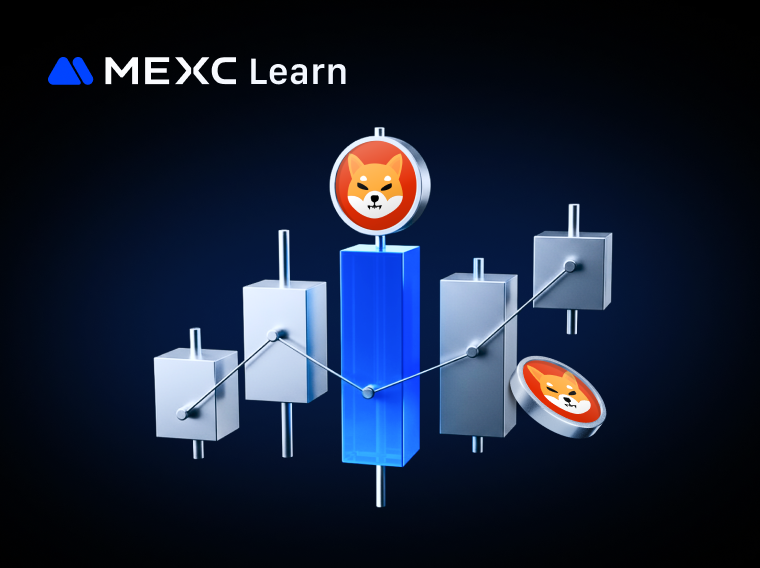Introduction to USDT's Legal Classification
USDT, also known as Tether Coin, is the world's most widely used stablecoin in the global digital finance sector. As an innovative cryptocurrency, Tether Crypto operates within a complex and rapidly evolving regulatory landscape. Currently, Tether Token is primarily classified as a digital asset or payment token in most jurisdictions, but its specific legal status can vary significantly from country to country. This classification affects how you can acquire and trade USDT, your tax obligations, and reporting requirements.
Understanding Tether's legal status is crucial for individual investors who must ensure compliance with local laws, businesses integrating USDT into their operations who need to navigate licensing requirements, and exchanges listing the Tether Token who bear significant compliance responsibilities. Regulatory clarity—or the lack thereof—directly impacts market confidence, institutional adoption, and the token's long-term value potential. The regulatory environment for USDT and similar digital assets is evolving rapidly, with new frameworks being introduced, existing regulations clarified through enforcement actions, and greater international coordination efforts all shaping how Tether Crypto is treated legally. This dynamic landscape requires USDT stakeholders to remain vigilant, as compliance requirements can change substantially with little notice.
Global Regulatory Approaches to USDT
The legal status of Tether varies across major jurisdictions:
- In the United States, USDT falls under the oversight of multiple regulators. The Securities and Exchange Commission (SEC) may classify it as a security if it meets the criteria of the Howey Test, while the Commodity Futures Trading Commission (CFTC) may consider it a commodity for trading purposes.
- The European Union has adopted a comprehensive approach through the Markets in Crypto-Assets (MiCA) regulation, which establishes clear categories for tokens like Tether Coin based on their functional characteristics and use cases.
- In Asia, regulatory approaches differ widely, with some countries treating USDT as a financial instrument, others as a payment token, and some as a utility token.
These classifications determine whether Tether Crypto is subject to securities laws, banking regulations, commodity trading rules, or specialized digital asset frameworks. For example, an activity that is fully compliant in Singapore might be restricted or even prohibited in the United States. Key regional differences include registration requirements for exchanges, permissible trading activities, and the application of travel rules for transfers.
Recent legal precedents have further shaped USDT's status. Enforcement actions against similar tokens have established that tokens sold through initial coin offerings may be considered securities, even if they later become more decentralized. Court rulings have clarified that a token's actual use and network functionality must be considered alongside marketing materials when determining its classification.
Key Compliance Requirements for USDT Users
For individuals and businesses engaging with Tether Token, Anti-Money Laundering (AML) and Know Your Customer (KYC) requirements are the most widespread compliance obligations. These typically include:
- Identity verification before trading significant amounts
- Ongoing transaction monitoring
- Reporting of suspicious activities
Major exchanges implement these requirements through tiered verification levels, imposing limits on trading volumes and withdrawal amounts until users complete specific identity verification steps.
Tax reporting for Tether Coin varies by jurisdiction but generally includes capital gains reporting when converting to fiat currency, income tax obligations for mining or staking rewards, and, in some countries, value-added tax (VAT) on certain transactions. Tax authorities in major markets are increasingly focused on cryptocurrency compliance, using sophisticated blockchain analysis tools to identify unreported transactions.
Businesses operating with USDT face additional licensing requirements that vary by jurisdiction and activity type. These may include money transmitter licenses, virtual asset service provider (VASP) registration, or specialized cryptocurrency business licenses. The cost and complexity of obtaining these licenses create significant barriers to entry for new Tether-focused businesses, with requirements ranging from minimum capital reserves to comprehensive compliance programs and regular third-party audits.
Cross-border transactions involving Tether Crypto trigger particularly complex compliance challenges due to the Travel Rule, which mandates that virtual asset service providers must collect, verify, and transmit originator and beneficiary information for transactions exceeding certain value thresholds. This creates technical challenges for USDT exchanges and services, requiring specialized compliance infrastructure to maintain the pseudonymous nature of blockchain transactions while still meeting regulatory obligations.
Legal Risks and Gray Areas for USDT
Despite ongoing regulatory developments, significant legal questions remain unresolved for Tether. These include whether certain activities constitute regulated financial services, how decentralized applications built on USDT should be regulated, and the extent to which privacy-enhancing features may conflict with compliance obligations. These gray areas create uncertainty for developers, businesses, and users in the Tether ecosystem.
Jurisdictional conflicts add complexity, as Tether Token operates on a borderless network while regulations remain jurisdiction-specific. This can result in situations where compliance with one country's regulations may create violations in another jurisdiction. Conflicting approaches to privacy further exemplify this tension, with some jurisdictions requiring comprehensive transaction monitoring while others emphasize strong data protection and privacy rights.
The tension between privacy and compliance is one of the most significant challenges for USDT and its users. Features such as enhanced privacy mechanisms that appeal to users concerned about financial surveillance may create significant obstacles to regulatory compliance. This places Tether Crypto users and service providers in the difficult position of balancing legitimate privacy interests against regulatory expectations for transparency.
Non-compliance with applicable regulations can result in severe consequences, including substantial financial penalties, business operation restrictions, and, in extreme cases, criminal charges for willful violations. Notable enforcement actions have resulted in multi-million dollar fines for businesses that failed to implement adequate AML programs or operated without required licenses. Individual Tether users may face tax penalties or charges related to unintentional or deliberate non-reporting.
Future Regulatory Trends for USDT
Looking ahead, several key regulatory initiatives are likely to reshape Tether's legal status. These include comprehensive cryptocurrency legislation being developed in major markets, central bank digital currency (CBDC) frameworks that may impact private cryptocurrencies, and enhanced international standards for virtual asset service providers. The Financial Action Task Force (FATF) continues to update its recommendations for virtual assets, which are increasingly being implemented across member countries.
International coordination efforts are gaining momentum, with collaborative frameworks being developed to address the inherently cross-border nature of Tether Coin and similar digital assets. These efforts seek to harmonize regulatory approaches, facilitate information sharing between regulators, and establish minimum standards that prevent regulatory arbitrage. However, significant differences in national priorities and legal systems continue to impede full regulatory convergence.
The USDT community is increasingly involved in self-regulatory efforts, developing industry codes of conduct, technical standards for compliance, and educational resources to promote responsible use. These initiatives aim to demonstrate the industry's commitment to responsible innovation and potentially influence the development of formal regulations in a direction that preserves innovation while addressing legitimate regulatory concerns.
Technological innovations within the Tether ecosystem may also influence future regulatory approaches. Developments such as identity solutions that preserve privacy while enabling compliance, enhanced analytics for risk monitoring, and programmable compliance features could help bridge the gap between regulators' need for transparency and users' expectations for privacy and autonomy. The successful implementation of these technologies may lead to more nuanced regulatory frameworks that accommodate Tether Token's unique characteristics.
Conclusion
The legal status of Tether Crypto remains complex and dynamic, varying significantly across jurisdictions while continuing to evolve as regulators develop greater understanding of blockchain technology. For USDT users and businesses, maintaining compliance requires staying informed about key developments and implementing appropriate compliance measures based on your jurisdiction and trading activities.
Description:Crypto Pulse is powered by AI and public sources to bring you the hottest token trends instantly. For expert insights and in-depth analysis, visit MEXC Learn.
The articles shared on this page are sourced from public platforms and are provided for informational purposes only. They do not necessarily represent the views of MEXC. All rights remain with the original authors. If you believe any content infringes upon third-party rights, please contact [email protected] for prompt removal.
MEXC does not guarantee the accuracy, completeness, or timeliness of any content and is not responsible for any actions taken based on the information provided. The content does not constitute financial, legal, or other professional advice, nor should it be interpreted as a recommendation or endorsement by MEXC.
Learn More About Humanity
View More
Is USDT Safe? A Complete Guide to Tether's Reserves, Audits & Regulatory Compliance in 2026

BONE & LEASH Tokens Explained: Your Complete Guide to the Shiba Inu Ecosystem

Pi Network KYC Deadline March 14, 2025: Complete Guide to Verification
Latest Updates on Humanity
View More
H World Group Launches New Hanting Inn Brand, Advancing Hanting Hotel’s Vision of Hospitality as Everyday Travel Infrastructure

Humanity Protocol Integrates Fireblocks to Expand Institutional Access

PAGCOR projecting flat GGR on caution over stagnant tourism
HOT
Currently trending cryptocurrencies that are gaining significant market attention
Crypto Prices
The cryptocurrencies with the highest trading volume
Newly Added
Recently listed cryptocurrencies that are available for trading
